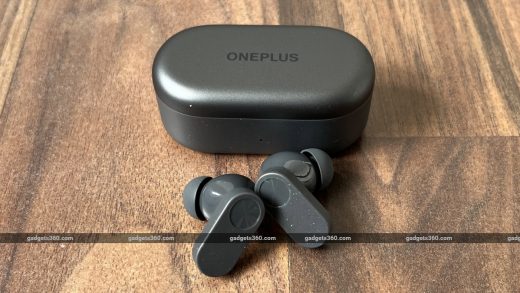
Apple is planning to scrap its long-term project to develop its own in-house 5G modem chip, according to a report on a South Korean web portal. Citing supply chain sources, the forum user states that the iPhone maker is preparing to shut down the project completely. Recent reports suggested that Apple was struggling to create its own modem chip despite years of investment and talent acquisition, keeping the company reliant on other chipmakers like Qualcomm for modems for its smartphones.
In the post shared on Naver (via GSMArena), the user states (translated from Korean) that the Cupertino company has begun “winding down its ongoing investment in the 5G modem development department and personnel that it has been developing in-house for several years.” Apple was previously said to be working on a 5G modem chip that could arrive on a smartphone by 2025.
The company’s efforts to design its own modem chip for the rumoured 4th generation iPhone SE model appears to have been unsuccessful and is “expected to be completely cleaned up,” the post states. The claims made in the post have been corroborated by Revegnus (@Tech_Reve) a tipster on X (formerly known as Twitter), who claims that he received the same information from a Japanese source.
Earlier this month, reports stated that Apple’s plans to bring its own 5G modem chip to a smartphone were unlikely to materialise until the end of 2025 or early 2026. The Bloomberg report came months after Apple renewed its deal with Qualcomm to include the latter’s modems in its upcoming iPhone models.
Despite Apple’s successful acquisition of Intel’s modem unit for $1 billion back in 2019 and the company’s efforts to develop a chip that began a year later, the report stated that Apple’s attempt to design its own modem has hit several roadblocks over the years.
In addition to developing a chip without infringing on Qualcomm’s several patents, Apple also faced other challenges while developing its own modem chip. These included the ability to offer fast 5G speeds to compete with chips from Qualcomm — Apple created different versions of the modem and one of them did not have support for millimetre-wave (mmWave) 5G bands that offer much faster speeds than Sub-6 5G bands.
While there’s no public announcement from Apple on whether the company plans to continue developing its own 5G chip, recent reports suggest that the company is unlikely to include its own modem on the successor to the iPhone SE (2022) and might have to rely on Qualcomm or other suppliers for modems on its smartphones for the foreseeable future.


